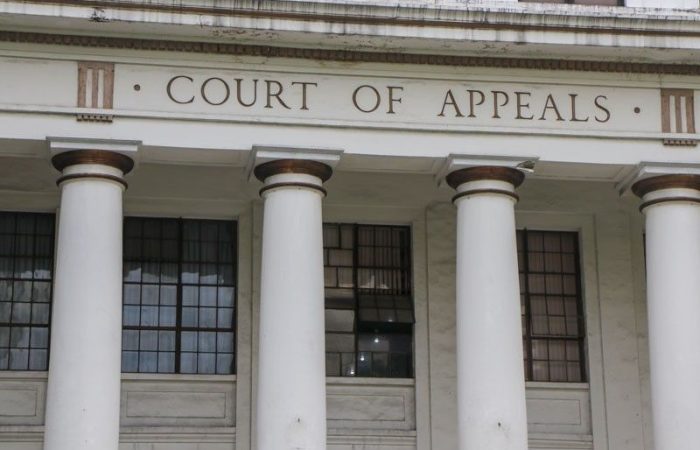By Susann Nordvik
It’s a story almost as old as time, or at least as old as high occupancy dwellings: Renter signs lease, renter pays security deposit, renter moves out, renter loses security deposit to a host of nebulous, if nonetheless predictable, “expenses” charged back by the landlord after the fact. This theme is so persistent that many tenants actually plan for the inevitable loss of their security deposit. Other tenants who are somewhat more optimistic have gone to extreme measures to try and recoup as much of the deposit as reasonably possible, including hiring detailing services for the white glove and cotton swab treatment of their former home.
Washington D.C., however, has implemented safeguards to protect the tenant’s right to recover security deposits. In 1955, the District enacted Title 14, Section 309 of the District of Columbia Municipal Regulations to prevent the renting public from losing those hefty deposits arbitrarily. The regulation provides that a landlord must provide notice in writing of the intent to withhold any portion of the security deposit to pay for repairs or other expenses within forty-five (45) days of the termination of the tenancy. Once this notice is provided, the landlord then has thirty (30) days to effectuate the claimed repairs and tender a refund of the unused amount to the tenant with an itemized statement of each expense to which the deposit funds were applied.
This modest provision was intended to protect the tenant from random charges and surprises. In many cases landlords complied with Section 309 in one form or another, and landlord/tenant relationships evolved accordingly. For some less scrupulous landowners, however, Section 309 marked the beginning of an arms race-like effort to avoid returning deposits. This eventually became such an obvious concern that in 2012, the District amended Section 309 include subsection 309.5, which details the consequences of a landlord’s failure to comply with the notice and refund requirements. In the garden variety situation, this would render the landlord responsible for the return of amounts wrongfully withheld, plus any interest accrued during the tenant’s occupancy of a year or more. Most notably, the new provision also contained a “treble damages” remedy in the event that the tenant was able to establish that the landlord acted in bad faith by refusing to return some or all of the tenant’s deposit. Another regulation requires landlords who hold a security deposit for one year or more must keep the funds in and interest-bearing account and then return the bank paid interest to the tenant with the remainder of the security deposit. See 14 DCMR § 311.2.
As an example, let’s say that Jack and Jill rented a two-bedroom apartment for $1500 per month and paid a security deposit of $1500. They paid the rent timely every month for 12 consecutive months and then moved out. Jack and Jill would then be entitled to a return of their deposit plus interest within 45 days (unless there was damage, which would give the landlord an additional 30 days to complete the repair and refund any remaining portion of the security deposit). However, during the final inspection, the landlord noticed that Jack had ripped up some of the tile on the floor in the bathroom, and got an estimate from Good Buddy for the repair at $250. The landlord then sends Jack a written notice that he will be withholding approximately $250 for the repairs to the bathroom floor. The landlord promptly has the repair completed, and within 30 days of the written notice to Jack and Jill, the landlord returns $1250, plus interest, and a receipt for the floor repair.
But what happens if there was actually no tile damage at the time of move out? Jack and Jill could be expected to be quite annoyed by the idea of having to be responsible for a $250 repair that was unnecessary, or based on conduct that took place after they left. In such a situation, Jack and Jill may be able to recoup their lost $250, plus an additional $500 if they can prove that the landlord charged them for non-existent floor damage.
This is not necessarily as simple as it may seem at first blush. The text of the regulation describes what “bad faith” means for the purpose of claiming treble damages:
For the purpose of this sub-paragraph, the term “bad faith” means and frivolous or unfounded refusal to return a security deposit, as required by law, that is motivated by a fraudulent, deceptive, misleading, dishonest, or unreasonably self-serving purpose and not by simple negligence, bad judgment, or an honest belief in the course of action taken. 14 DCMR § 309.5(2).
Based on this definition, it would be plausible to obtain treble damages if Jack and Jill can prove that there was never any floor damage prior to vacating the apartment. Moreover, if Jack and Jill can show that the estimate obtained by the landlord was falsified by Good Buddy, a long-time friend of the landlord, this goes a long way to proving that the whole claim as a sham to enable the landlord to keep $250 of the deposit. However, the landlord may not be found to have acted in bad faith if after his real estate broker conducted the final inspection, the cleaning crew damaged the floor and tried to pass it off as a circumstance caused by Jack and Jill. The landlord may have reasonably believed the story of his staff rather than his former tenant.
Additionally, the ability to recover treble damages may also be reduced by a lack of evidence provided to the civil judge or the administrative law judge (“ALJ”) (if a claim is made to the Rental Housing Commission). This was the case in Bell v. Pourbabai, RH-TP-13-30, 448 (OAH Apr. 15, 2015).
Bell, together with seven others, rented a single-family residence for $10,000 per month and paid a $10,000 security deposit. Bell claimed that after more than a year of tenancy, the residents decided not to renew the lease, and although the premises were left in nearly as good a condition as they found it (with some exceptions), the landlord refused to return any portion of the $10,000 deposit. The tenants filed a petition with the Rental Housing Commission. After a full evidentiary hearing, the ALJ found that although some amounts of the deposit were improperly withheld, there was an insufficient showing of the landlord’s state of mind in refusing to return the deposit, and consequently, Bell was not entitled to treble damages. The ALJ stated:
In this case, there was no evidence to allow me to consider Housing Provider’s state of mind. The testimony and evidence did indicate that the Housing Provider was at times intimidating and occasionally threatened the tenants unnecessarily, however, a totality of the evidence presented indicates that Housing Provider’s improper deductions were the result of bad judgment and poor management. Moreover . . . it also appears that . . . he may have received improper advice from his attorneys.
It cannot be overstated that renting is a costly endeavor for both landlords and tenants. Therefore, the most important thing for either a tenant or a landlord to do is to document everything. Photographs or video of both the pre-move in and post-move out inspections will protect both parties from damage claims. Documentation should include any appliances that were included in the rental, as well as fireplaces, the condition of walls, and any surfaces or fixtures that have been subjected to normal wear and tear. If maintenance or repairs are an obligation under the lease, then the responsible party should document all such efforts and copy the other party with any relevant estimates or receipts. Any requests or communication between landlord and tenant should be memorialized in writing, at least as a follow up or recap. By doing so, it may be possible to avoid a significant percentage of conflict and miscommunication. At the same time, if your landlord has a bad intent, you may be able to unmask fraud or deception through your showing of consistent care and effort.
Consulting an attorney experienced in bad faith cases may also help guide you along the way. If you are a tenant, your attorney can help you understand the level of evidence necessary to develop your unique situation in the best possible way. If you are a landlord, an experienced attorney can assist you in navigating your obligations and avoid costly errors. Feel free to contact Steven Krieger Law, if you need any assistance




